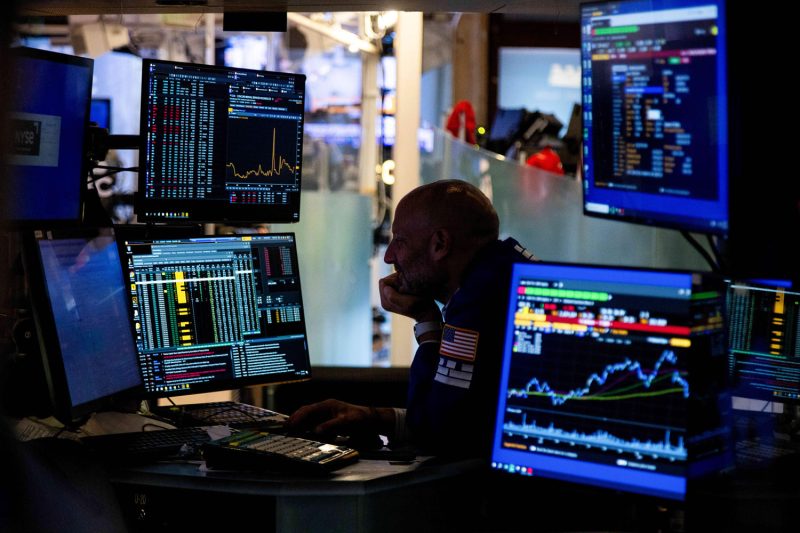
Market Turmoil: Dow Plunges Nearly 500 Points Amid Recession Fear Surge
The Dow Jones Industrial Average saw a significant drop of almost 500 points on Thursday, causing concern among investors who fear a potential recession on the horizon. This sharp decline comes as a stark reminder of the volatility present in the financial markets, with various economic indicators pointing towards a slowdown in global growth. Investors are closely monitoring these signals, looking for clues on the future direction of the economy.
A key factor contributing to the downturn in stock prices is the ongoing trade tensions between the United States and China. The ongoing trade war has created uncertainty for businesses and investors, leading to a decrease in consumer confidence and overall economic uncertainty. The tit-for-tat tariff measures implemented by both countries have disrupted supply chains and increased costs for companies, ultimately impacting their bottom line and dampening economic growth.
Furthermore, the recent inversion of the yield curve has raised red flags for many investors. Historically, an inverted yield curve has been a reliable predictor of economic recessions. This occurs when the yields on long-term bonds fall below those of short-term bonds, signaling a lack of confidence in future economic prospects. The inverted yield curve has heightened concerns about the longevity of the current economic expansion and has fueled speculation about a potential downturn.
In addition to external factors such as trade tensions and the yield curve inversion, domestic economic indicators have also been cause for concern. Weakening manufacturing data, slowing job growth, and tepid consumer spending all point to a potential slowdown in the U.S. economy. The Federal Reserve’s recent interest rate cut was seen as a preemptive measure to cushion the economy from external headwinds, but it also served as a reminder of the central bank’s concerns about economic growth.
As investors navigate this uncertain economic landscape, it is crucial for them to remain vigilant and informed. Diversification, risk management, and a long-term investment horizon are key principles to weathering market volatility and economic uncertainty. While market fluctuations are a natural part of the investment cycle, staying focused on one’s financial goals and maintaining a well-balanced investment portfolio can help mitigate potential risks and navigate turbulent market conditions.
In conclusion, the recent drop in the Dow Jones Industrial Average reflects the growing concerns among investors about the potential for a looming recession. By closely monitoring economic indicators, staying informed about market developments, and adhering to sound investment principles, investors can position themselves to navigate market volatility and make informed decisions for their financial well-being.
